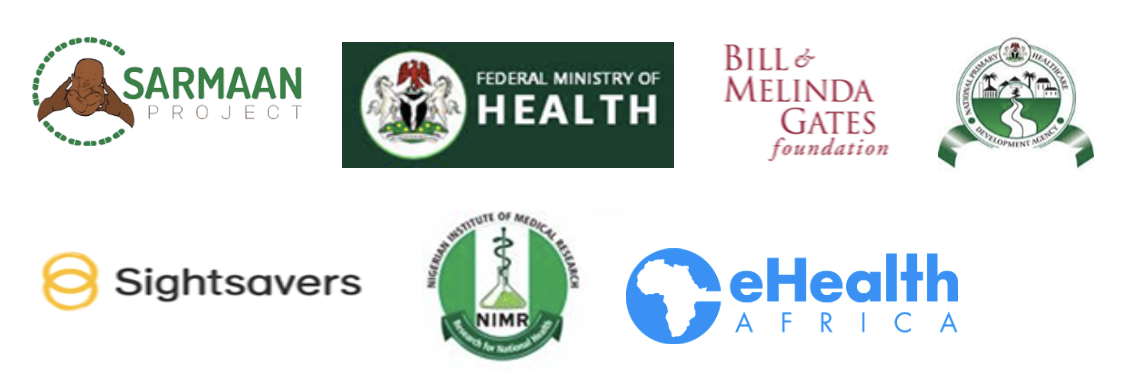#Child Health, #SARMAAN, #Data Management
In a bold move to address infant mortality, the Nigerian government through the Federal Ministry of Health, in collaboration with implementation partners, initiated the Safety and Antimicrobial Resistance of Mass Administration of Azithromycin on Children 1-11 months in Nigeria (SARMAAN) research project. The project's focal point is the mass administration of Azithromycin to children aged 1 - 11 months to understand its impact on safety, antimicrobial resistance, and overall reduction in infant mortality.
The SARMAAN project unfolds in two phases: firstly, to investigate the safety and pattern of antimicrobial resistance (AMR) resulting from Azithromycin administration, and secondly, to assess the cost, feasibility, and acceptability of the drug delivery through various platforms. With three (3) successful cycles completed across six states, the project is well on its way to achieving its milestones.
The study areas - Jigawa, Kebbi, Kano, Sokoto, Akwa Ibom, and Abia are a microcosm of the diverse challenges and opportunities in Nigeria. Their unique characteristics- geographical features to economic structures, provide a rich backdrop for a comprehensive understanding of the SARMAAN project's impact on healthcare delivery. The research looks at the interplay of factors such as regional health disparities, cultural nuances, and existing healthcare infrastructures. This nuanced examination allows for a more profound appreciation of the project's significance within the context of Nigeria's varied landscapes and sociodemographic compositions.
eHealth Africa worked on data management in six implementing states, using digital tools to streamline processes. Key deliverables included the digitization of paper-based case reporting forms, the creation of a study database, and the training of data collectors. The meticulous approach ensured data accuracy and reliability.
The implementation approach, outlined in the document, emphasizes a systematic methodology. With a focus on data processing, storage, and dissemination, the project leveraged digital platforms like Kobotoolbox and Tableau to ensure a smoother information flow.
The raw data is collected, filtered, sorted, processed, analyzed, stored, and then presented in a readable format. The stages deployed to process the collected data.
For this study, data uploaded to the Kobo server is first processed in the Feature Manipulation Engine (FME) before being sent to the study's Postgre SQL database. The next stage is GeoServer, where fields are exposed as needed and finally disseminated using Tableau.
The SARMAAN project has seen significant achievements in its implementation, with over 18,100 children reached out of the 17893 children targeted across 3 cycles. Training initiatives, data processing, and cleanup were conducted meticulously, contributing to the success of the project. The Tableau dashboard provided a comprehensive overview of the progress, ensuring transparency and accountability. The SARMAAN project dashboard can be accessed via the link.
Despite the successes, the project encountered challenges, including violations of daily community visitation targets, inadequate training facilities, and security concerns. In addition, some data collectors needed more essential tools. Stakeholder engagement gaps existing in certain states also hindered compliance.
The project offers valuable insights, highlighting the importance of daily visitation plans, group training approaches, and adapting to cultural norms. Recommendations include the need for targeted outreach strategies, increased female data collectors in specific regions, and an extended training period for enhanced proficiency.
The SARMAAN project stands as a testament to the power of research and collaboration in addressing critical health challenges. By navigating challenges and incorporating key lessons, the project is poised to continue making a positive impact on infant mortality rates in Nigeria. The journey so far reflects a commitment to innovation, data-driven decision-making, and the well-being of the nation's children.
PARTNERS




